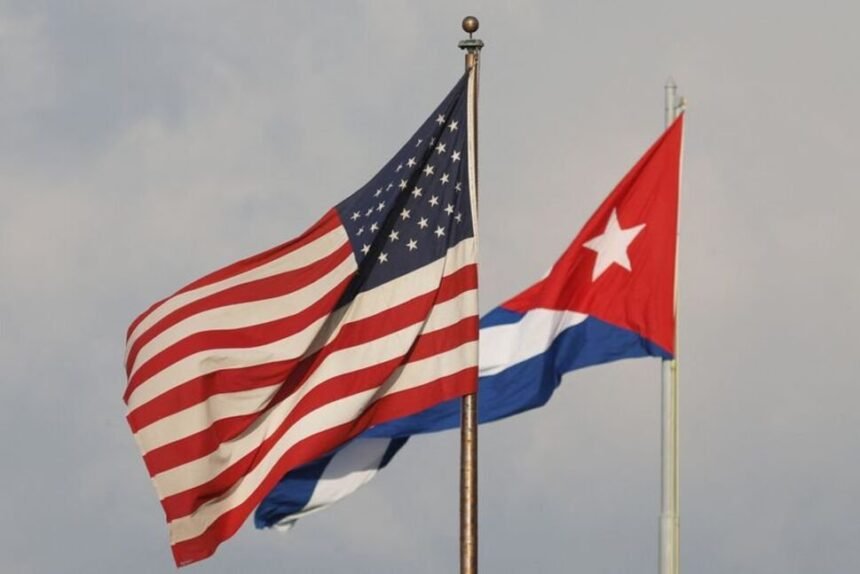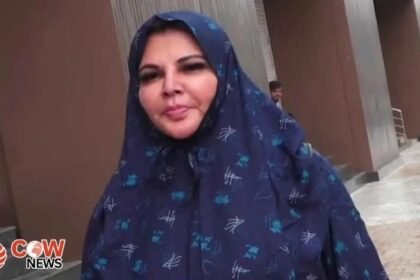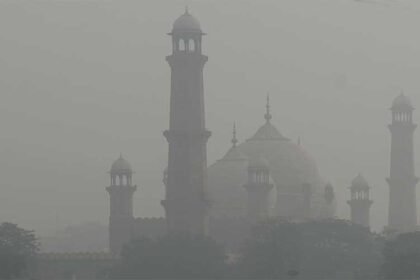The United States has officially announced the removal of Cuba from its list of state sponsors of terrorism. According to the White House, President Joe Biden made the decision after a comprehensive review of Cuba’s actions and policies. A senior Biden administration official told journalists that there is no evidence to justify Cuba’s continued inclusion on the list, which includes countries accused of supporting global terrorism.
Cuba has welcomed this decision, calling it an important step in the right direction. However, the Cuban government expressed disappointment that it remains under the US embargo, which has been in place since 1962. This announcement comes at a time when diplomatic relations between the US and Cuba have shown signs of improvement.
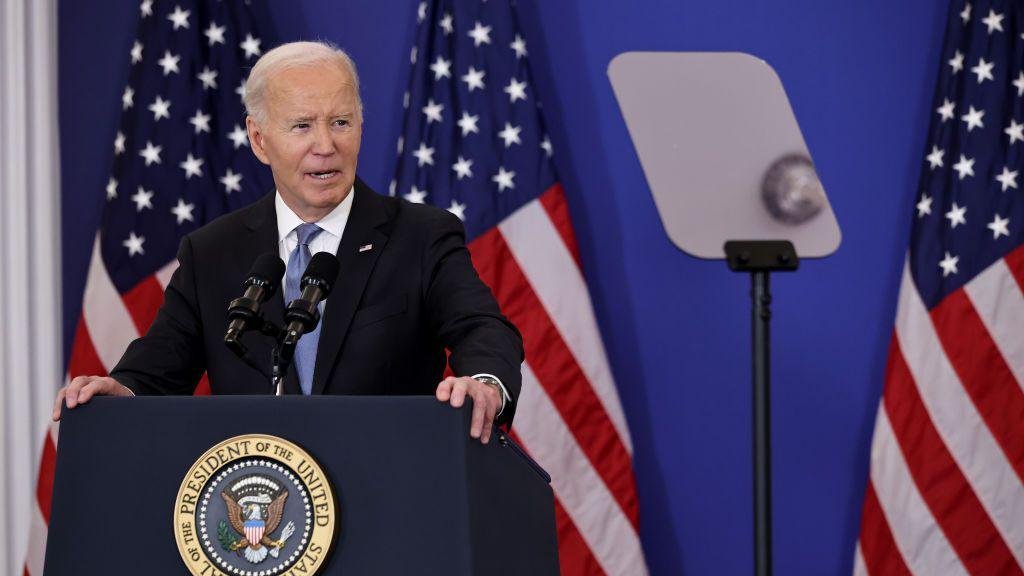
Reports indicate that the US decision could be reversed if former President Donald Trump resumes office. Trump had added Cuba to the terrorism list in 2021 during the final days of his first term. The inclusion of Cuba on the list had been a point of contention in US-Cuba relations, hindering efforts to normalize diplomatic ties and reopen embassies.
In a direct response to the US announcement, Cuba also revealed that it would release 533 prisoners who had been detained on various charges. The Cuban Ministry of Foreign Affairs stated that the prisoners, facing accusations related to a range of offenses, would be freed in the coming days. This announcement was seen as a gesture of goodwill, aimed at further improving relations with the United States.
Cuba expressed its satisfaction with the US decision to remove its name from the list, stating that it should never have been included. In a statement, Cuban officials emphasized that Cuba has long been a victim of terrorism, with over 3,478 citizens killed and 2,099 left disabled by terrorist acts. The Cuban government reiterated that it has always opposed terrorism and has worked to counter it, making its removal from the list of terrorism sponsors a fair and logical move.
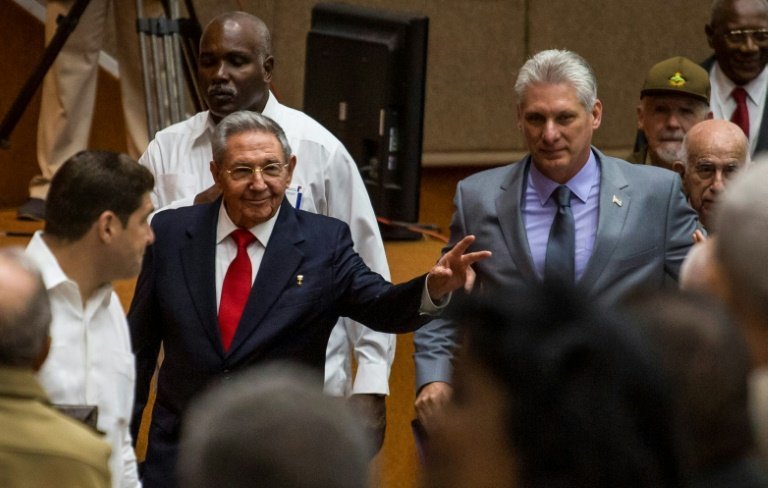
The US action follows a gradual thawing of relations between the two nations. In December of the previous year, President Barack Obama had announced an effort to improve relations between the US and Cuba. However, despite these diplomatic improvements, Cuba remains subjected to strict economic sanctions imposed by the US Congress. These sanctions can only be lifted by the US Congress, which has yet to take any significant action to remove them.
The inclusion of Cuba on the US terrorism list had long been a significant obstacle to the reopening of embassies and the restoration of full diplomatic relations. This list also includes countries such as Iran, Syria, and Sudan. A major point of contention between the two countries was the presence of Cuba on this list, with the US citing Cuba’s support for groups that Washington views as terrorist organizations. The removal of Cuba from the list represents a positive shift in US-Cuba relations, which had been strained for decades.
Josefina Vidal, Cuba’s chief diplomat responsible for relations with the US, issued a statement on Tuesday night in which she expressed the Cuban government’s understanding of the US decision. Vidal emphasized that Cuba’s inclusion on the list was unjustified, as the country has itself been a target of terrorism for decades. She also pointed out that Cuba has consistently opposed global terrorism and has worked toward its eradication.
In Havana, ordinary Cubans expressed their approval of the decision. One citizen told the Associated Press, “We are not terrorists; we are the opposite. We are advocates of peace and tranquility.” This sentiment was echoed by many others who view the removal as a positive development in the ongoing process of normalization between the two countries.
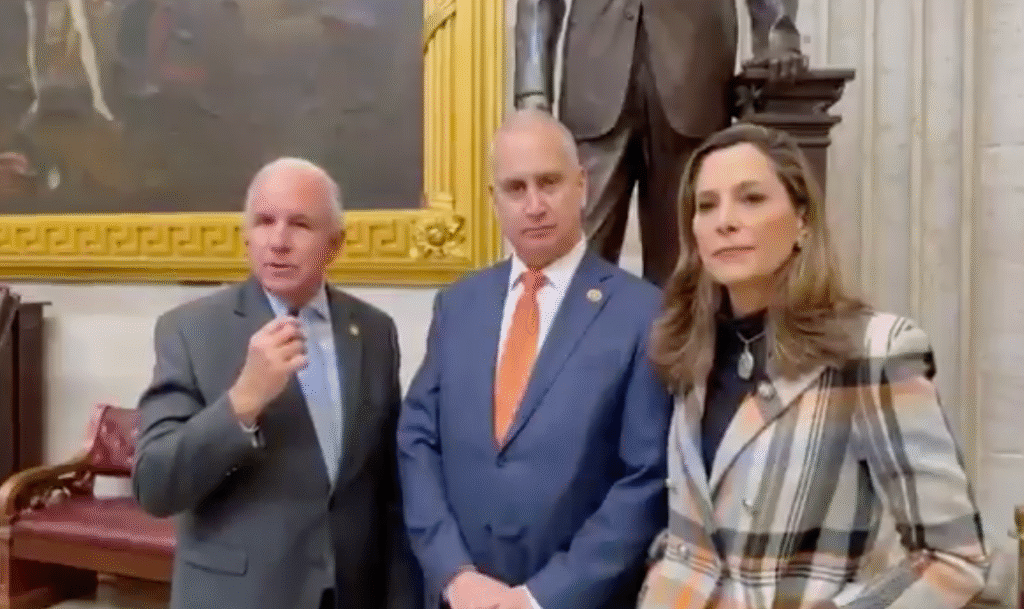
President Obama had previously informed Congress that Cuba had not engaged in any acts of international terrorism over the past six months and had pledged to assist in the fight against terrorism globally. White House Press Secretary Josh Earnest stated that while the US still disagrees with Cuba on several issues, these differences are not related to terrorism. Earnest further clarified that while Cuba is being removed from the terrorism list, Iran, Sudan, and Syria will remain on it for the time being.
The decision to remove Cuba from the terrorism list, however, has been met with criticism from some Republican lawmakers. Senator Marco Rubio, a Cuban-American lawmaker and potential 2016 presidential candidate, condemned the decision. Rubio argued that Cuba continues to support terrorism by harboring individuals who have fled US justice, including a man who killed a police officer in New Jersey three decades ago.
The US-Cuba relationship has been marked by a long history of tension, beginning in 1960 when the US severed diplomatic ties with Cuba following Fidel Castro’s revolution and the establishment of a communist government. In 1961, the US supported the failed Bay of Pigs invasion, and in the following years, Cuba increasingly aligned itself with the Soviet Union. In 1962, in response to US threats, Castro allowed the Soviet Union to install nuclear missiles in Cuba, leading to the Cuban Missile Crisis and bringing the two superpowers to the brink of nuclear war.
In the 1980s, the US tightened its sanctions on Cuba in response to the country’s involvement in international conflicts, including the support of Marxist insurgencies in Latin America. In 1993, following the collapse of the Soviet Union, the US imposed even stricter economic sanctions, which remain in place to this day.
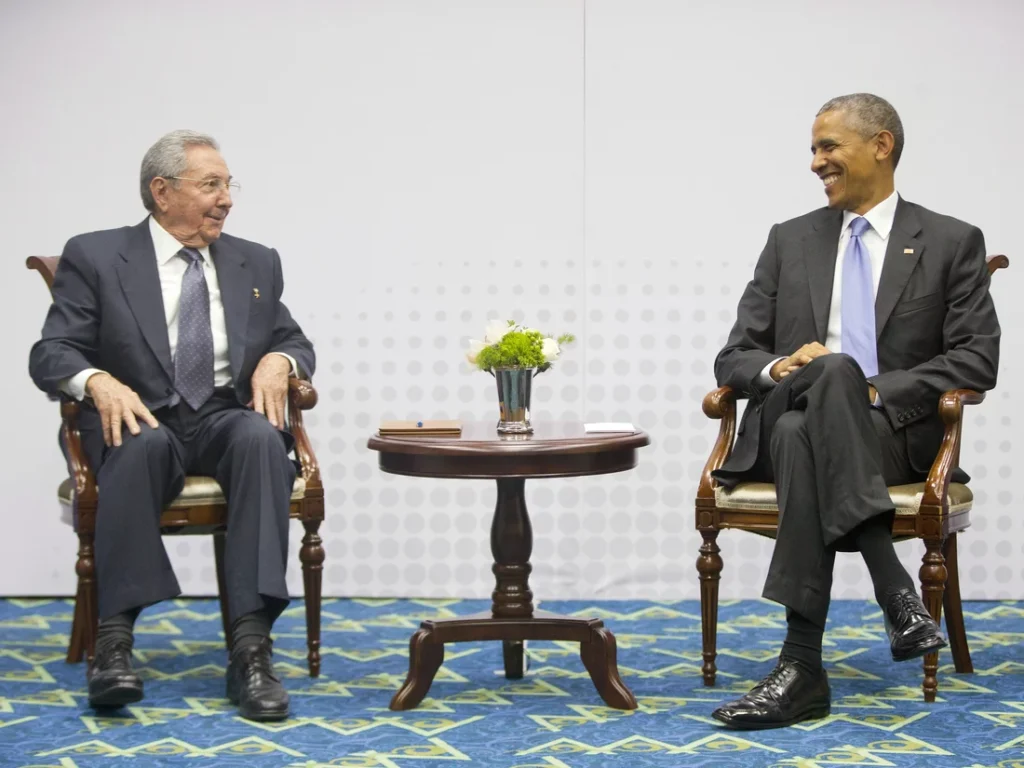
However, in recent years, there have been signs of warming relations. In 2014, President Obama announced that the US would restore diplomatic and economic ties with Cuba. The 2016 decision to reestablish full diplomatic relations was followed by significant improvements in areas such as trade, travel, and people-to-people exchanges.
In addition to the diplomatic improvements, President Obama had long expressed a desire to remove Cuba from the terrorism list. The move to delist Cuba is seen as a critical step toward normalizing relations and ending decades of hostility. Obama has stated that he hopes to continue this process of rapprochement, with the ultimate goal of establishing full diplomatic and economic ties between the two nations.
However, despite the positive steps, the economic embargo remains in place. The embargo is a major point of contention, as it continues to impact Cuba’s economy and restricts trade between the two countries. Lifting the embargo will require action from the US Congress, which has shown little interest in removing the restrictions.
Cuba’s removal from the terrorism list represents a significant shift in US policy, but it is only one step in a much larger process of normalization. President Obama has made it clear that his administration will continue to pursue policies aimed at improving relations with Cuba, but he has also emphasized that the US will continue to hold Cuba accountable for its human rights record and other concerns.
In conclusion, the US decision to remove Cuba from the list of state sponsors of terrorism marks an important milestone in the ongoing process of normalizing relations between the two countries. While challenges remain, including the continued US embargo and political disagreements, this decision represents a positive step forward in the effort to build a more constructive and cooperative relationship between the US and Cuba.

